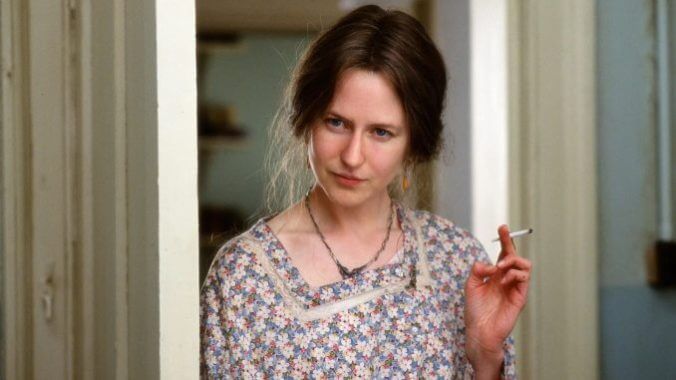The Hours Is Delicate, Haunting, and So Much More than Nicole Kidman’s Fake Nose

The Hours is the platonic ideal of a prestige piece. A 2002 film based on a great work of literature that was, in turn, inspired by another great work of literature, its story spans three timelines spread across 75 years and wrestles with complex philosophical questions about death, happiness and the meaning of life. It was nominated for nine Academy Awards and features a stacked ensemble cast of A-list performers and supporting scene stealers that few films in the 20 years since its release have managed to equal. Yet, when most people nowadays think of the movie, they remember little more than Nicole Kidman’s nose.
Yes, Kidman, who won a Best Actress Oscar for her performance as Virginia Woolf in the film, wore a prosthetic nose to help transform herself into the incredibly brilliant and infamously homely author. But somehow, despite dozens of men having done similarly in the years before and after this film’s release—Gary Oldman reportedly spent four hours in a make-up chair every day for Darkest Hour, the Winston Churchill biopic that finally netted him an Academy Award just six years later—Kidman’s willingness to dial back her looks was treated as a sad joke, a bit of technical wizardry that secured the actress the sort of major award consideration she obviously couldn’t have earned on her own. “By a nose,” snarked Denzel Washington as he announced her name from the Oscars podium, inviting the assembled audience to laugh at her and her work even as they ostensibly celebrated her achievement. (Has anyone ever done this to a man? Just asking questions!)
Unfortunately, in the months and years that followed The Hours’ release, the film seemed to become synonymous with Kidman’s prosthetic and, as a result, its legacy evolved accordingly. Perhaps a movie so indelibly connected to one of its leading actresses’ appearances—to her willingness to become ugly in the name of her art—would always be treated…if not cruelly, at least dismissively, as though a story that’s so deliberately focused on female interiority, that so unashamedly embraces its literary roots, could never be more than try-hard Oscar bait. (Again, a label that rarely gets attached to movies like the equally prosthetic-heavy Darkest Hour, or the CGI-deaged The Irishman.)
This is a shame for many reasons, not the least of which is that The Hours is fantastic, a delicate, emotionally harrowing story about depression, longing and the specific, bone-deep exhaustion that comes from pretending to be fine when you aren’t. When stories like this are about men, they’re almost always about some form of overt or repressed violence, but here it is emotional pain that takes center stage in a story unapologetically about women’s inner lives, and the ways that they are consistently asked to sacrifice their own happiness for the comfort of others.
-

-

-

-

-

-

-

-

-

-

-

-

-

-

-

-

-

-

-

-

-

-

-

-

-

-

-

-

-

-

-

-

-

-

-

-

-

-

-

-








































